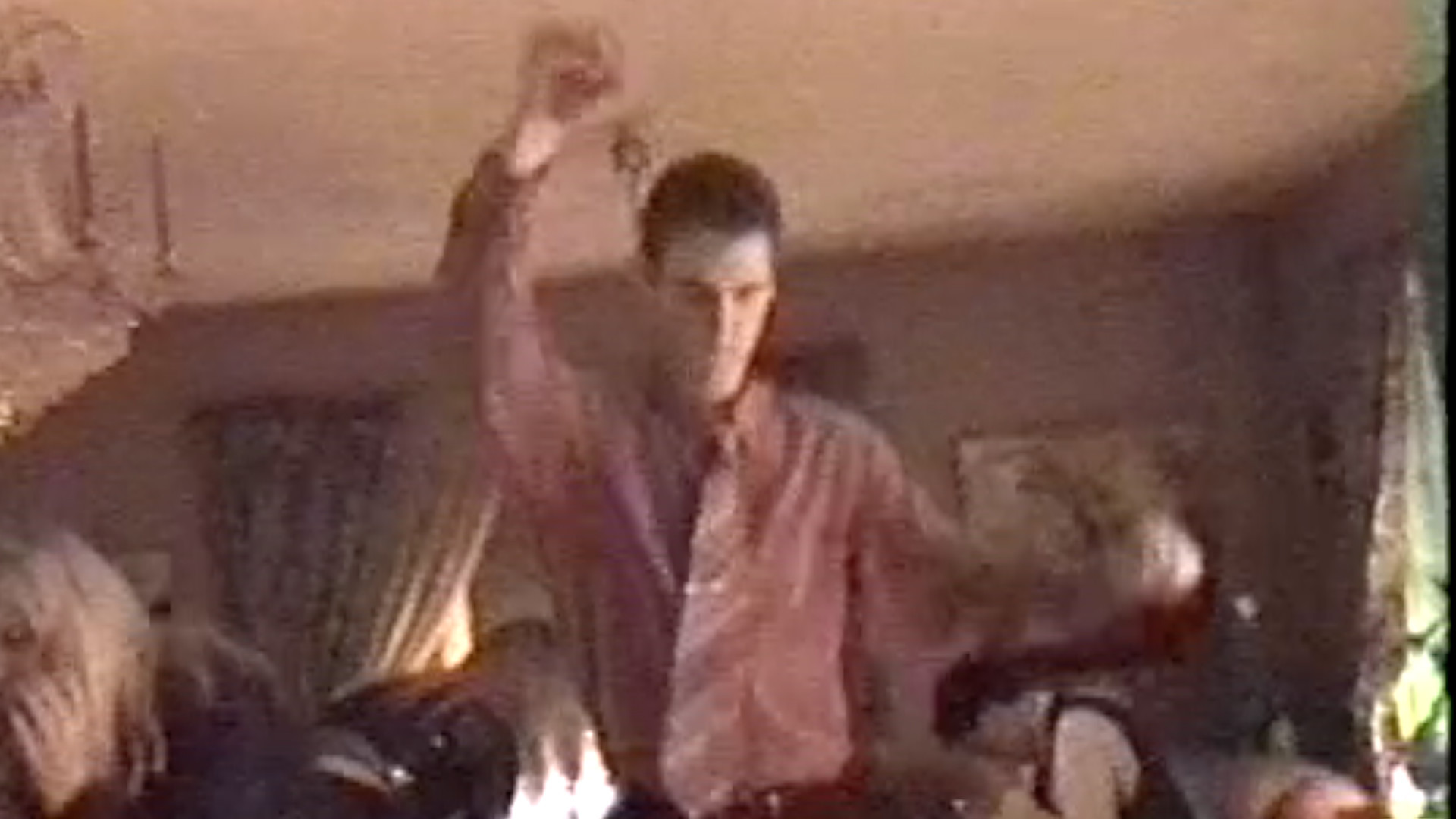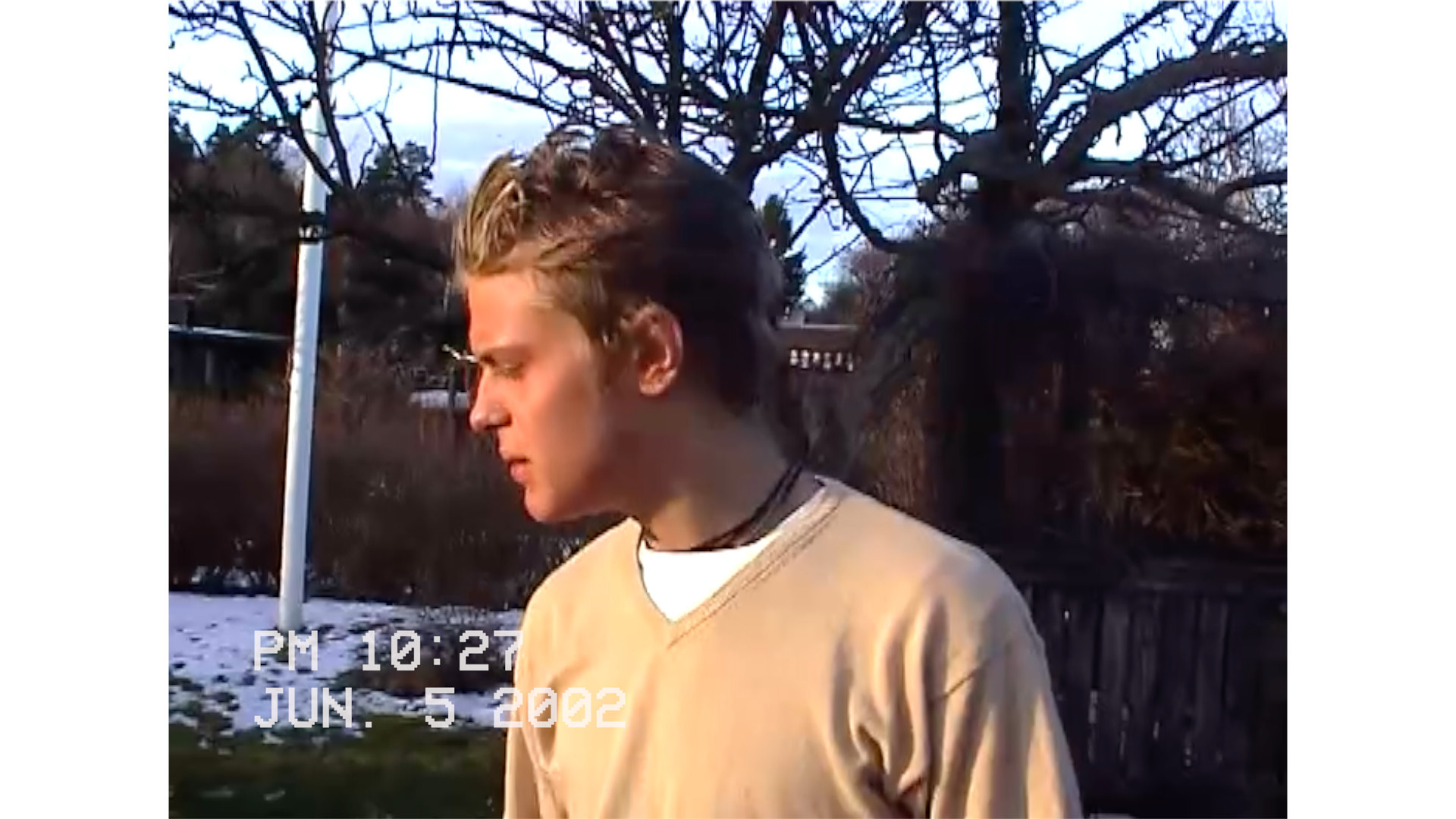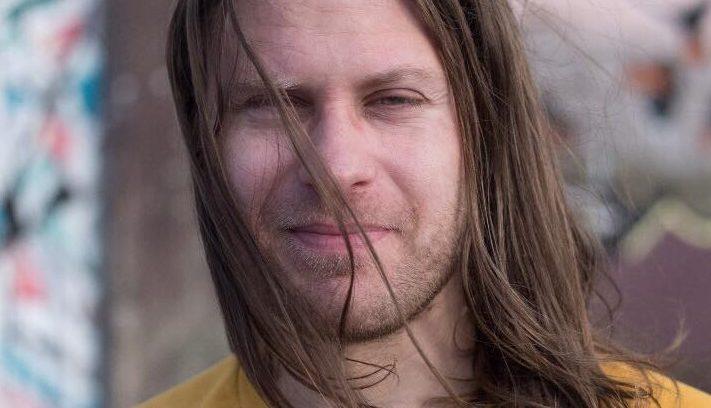
Case Study: You Are Always 20
Christer Wahlberg took a dive back into this own youth.
Geplaatst op 25 februari 2021
Christer Wahlberg took a dive back into this own youth.
Geplaatst op 25 februari 2021When Christer Wahlberg first came up with making a documentary about his teenage years, he didn't realize how much great material he already had. An old gangster movie he made with friends in 2001, became the basis for a portrait about an immortal youth.
"To me it was important that nothing was holy, but to still keep my integrity."
"The idea for the film has always been there for me, since it affected my life in such a big way. But when me and my girlfriend got our first kid, a daughter named Lou, I realized all the worry and anxiety you experience; you constantly check if she's breathing when she's sleeping and you try to protect her at any cost. I started to think about how she would be when she got to be a teenager. Would she be as limitless as I was, when I was young? At the same time I got hold of an old gangster movie, that me and my best friend made when we were twenty. And I started to remember my youth."
"In the documentary I lead the audience with my voice. The script was an organic process and it changed constantly along the way. I wrote something down, recorded it, and if it didn't fit the images, or didn't have the right tone, I changed it. Some things that I'm saying were scripted before, others are just improvisation. Since the movie was almost completely made in the editing room, so was the voice over. I did over 1400 takes, and when the movie finally was done, I recorded it all over again but with a better microphone."

"When I first started with the documentary, it was more of a traditional style: filming me now when I'm thirty-eight years old, and mixing it up with old archive material. When I applied for money from Swedish film funds I got rejected by everyone. Of course it made me sad, but I thought that my story was too strong to just give up."
"The more I edited, the more I started to use the archive material (the gangster movie we did when we were young). And at some point I made a choice: I was going to tell the whole story by just using the old footage. And when I made that choice, all the pieces fell into place. I had something unique and original."
"I did a rough cut and applied for money once again. I didn't changed the story, I just changed how I was telling it. Now suddenly everyone became interested: the Swedish Film Institute, Swedish Television and Film I Väst. This is one of the biggest lessons I've learned as a filmmaker - how important the 'how' is when you are telling a story."
"I edited the movie for almost 12 months. If you edit that much, it's almost certain you become blind. I made a decision pretty early in the process, which was that I would get help. I used four different dramaturges, I let two editors and one artist help me with the edit. I had almost twenty people watch the film's different versions at private screenings, and I took notes of what everyone was saying."
"The biggest decision I made was that I mentally had the attitude that 'all feedback is good feedback'. I really let my guard down and tried not to get hurt if anyone pointed out something specific that they didn't like. I just thought to my self that this is a process, and if they didn't like something, it wasn't me personally that they didn't like, it was just something in the movie. To me it was important that nothing was holy, but to still keep my integrity."
"One example is that the movie first was titled Are We Going To The Ocean. Then someone said they didn't like it, and it would be better to change it. At first I was a little bit hurt, I really liked the title, and thought it was poetic. But when I asked four people if they remember what the movie was called, no one did. To me that was just evidence that it wasn't as good as I thought. And instead of clinging on to it, and let my feelings decide as opposed to the facts, I changed it. Personally I like the new one better."

"I did a lot of the sound design my self and wanted to have a pretty rough sound image. I wanted to be true to the original footage and not loose that documentary feeling, but at the same time I wanted it to feel like a live action movie."
"I write a lot of music myself, so I could use my own compositions. But I also wanted to have that 2000-feeling in the movie, so I looked for eurotechno music and an artist that was big a the time. I also got help from a friend, John Bullfrost, an artist from Sweden, who contributed with a dance song in one of the scenes."
"Now when the film is done I do most of the distribution myself through sites like Filmfreeway, but also check out important specific festivals, and submit my work directly via their homepages. In the beginning I sent my movies to everyone, but lately I've been picky. If you submit via Filmfreeway make sure to read about the festival on the info site, so that your film suits the festival."
"My advice to directors is to listen to people around you: friends, people you trust, professionals and complete strangers. Let others see what you have done, both early in the process but also later. Listen to them. What did they feel when they saw your film?Take notes. You can even notice their facial expressions when they watch a specific scene."
In the past, when I made films, it was so important that I had made all the decisions myself. It was important that I was not influenced by others. Now it is the opposite. Filmmaking is teamwork and in the end it is actually an audience that will watch your film, not just you. Of course, the movie should never be only what others people think, and not be treated as a product that will please as many people as possible. But if you know in what direction you want the movie to go, the help from others can make it go from good to magical."
(c) All visual material is used with the filmmaker's permission.
